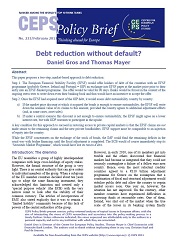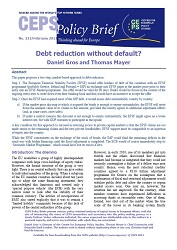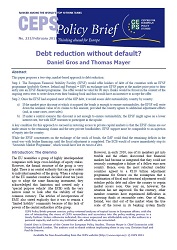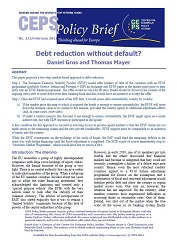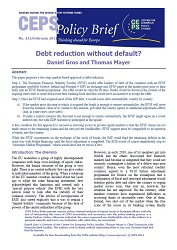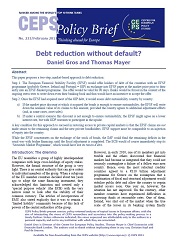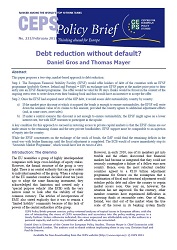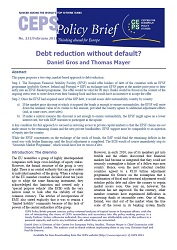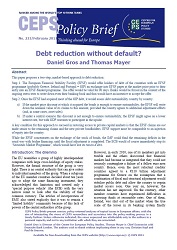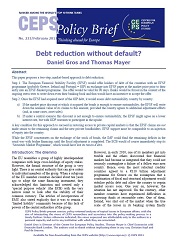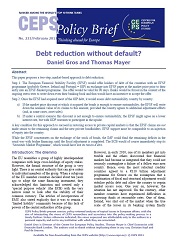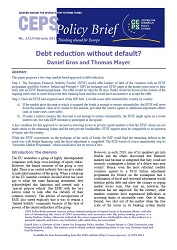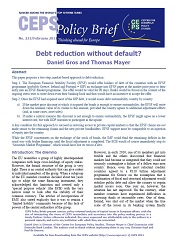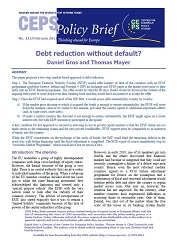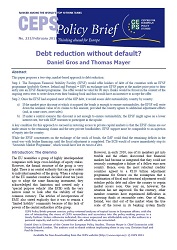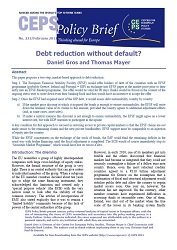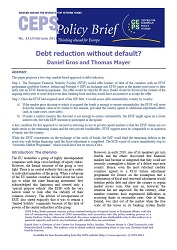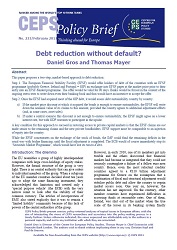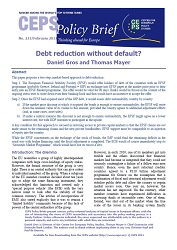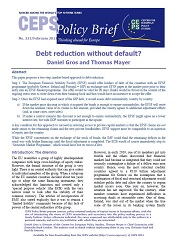
№237. Restoring financial stability in the euro area
№237. Restoring financial stability in the euro area
Keywords: financial stability; Euro area; Restoring financial stability; sovereign credit risk; European Monetary Union;
The pricing of sovereign credit risk is a necessary component of the financial architecture of the European Monetary Union. However, unnecessarily high and volatile risk premia on government bonds are currently preventing effective financial intermediation within the euro area, there by inhibiting its economic recovery. Several proposals have been made on how these risk premia should be brought down, namely i) permanent pooling of funding through joint bond issuance, ii) temporary liquidity assistance through multilateral funds, iii) debt buybacks using multilateral funds, and iv) debt restructuring.
More...
